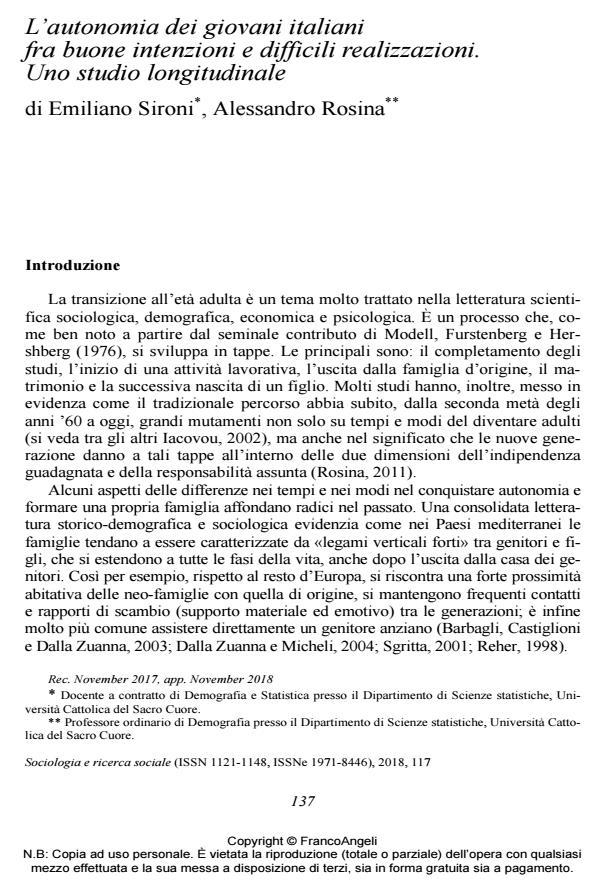L’autonomia dei giovani italiani fra buone intenzioni e difficili realizzazioni. Uno studio longitudinale
Titolo Rivista SOCIOLOGIA E RICERCA SOCIALE
Autori/Curatori Emiliano Sironi, Alessandro Rosina
Anno di pubblicazione 2019 Fascicolo 2018/117
Lingua Italiano Numero pagine 19 P. 137-155 Dimensione file 285 KB
DOI 10.3280/SR2018-117009
Il DOI è il codice a barre della proprietà intellettuale: per saperne di più
clicca qui
Qui sotto puoi vedere in anteprima la prima pagina di questo articolo.
Se questo articolo ti interessa, lo puoi acquistare (e scaricare in formato pdf) seguendo le facili indicazioni per acquistare il download credit. Acquista Download Credits per scaricare questo Articolo in formato PDF

FrancoAngeli è membro della Publishers International Linking Association, Inc (PILA), associazione indipendente e non profit per facilitare (attraverso i servizi tecnologici implementati da CrossRef.org) l’accesso degli studiosi ai contenuti digitali nelle pubblicazioni professionali e scientifiche.
This paper aims to explore the determinant factors for young adults’ achievement of residential independence (in 2016) from the family of origin for Italian young adults, conditionally on having expressed positive intentions of moving out twelve months prior (in 2015). Using data from the longitudinal survey Rapporto Giovani, carried out by the Toniolo Institute of Advanced Studies, the authors provide empirical evidence that the inability to find a stable job reduces young adults’ perspectives of autonomy. Net of employment status and of macroeconomics context, individuals with higher education are more likely to realize their intentions of leaving moving out.
Emiliano Sironi, Alessandro Rosina, L’autonomia dei giovani italiani fra buone intenzioni e difficili realizzazioni. Uno studio longitudinale in "SOCIOLOGIA E RICERCA SOCIALE " 117/2018, pp 137-155, DOI: 10.3280/SR2018-117009